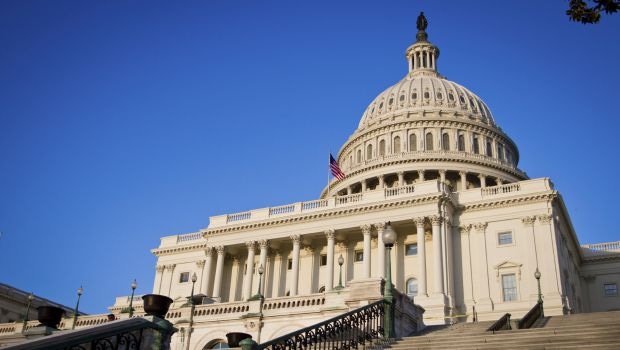The Senate Agriculture Committee has passed a farm bill without including a controversial hemp-related amendment by Sen. Chuck Grassley.

The CBD industry on Wednesday averted a potentially huge setback after the U.S. Senate Agriculture Committee passed a farm bill without including a controversial amendment by Sen. Chuck Grassley (R-Iowa).
Grassley on Tuesday introduced an amendment to the farm bill that would exclude cannabinoids from the definition of hemp, dealing a potentially fatal blow to marketers of cannabidiol (CBD) in dietary supplements and other products.
The amendment, which was shared by the National Hemp Association (NHA) in an email to its stakeholders, would exclude from the definition of hemp “derivatives, extracts, cannabinoids, isomers, acids, salts, and or salts of isomers, whether growing or not, of Cannabis sativa L.”
But industry sources reported the farm bill was passed out of committee by a vote of 20 to 1 without Grassley's amendment.
Sen. Majority Leader Mitch McConnell (R-Kentucky) previously secured language into the farm bill through the Hemp Farming Act of 2018 that would remove hemp—including cannabinoids and extracts—from the definition of a controlled substance.
Grassley’s amendment threatened the future legal status of CBD and extracts claiming to be rich in cannabinoids sourced from hemp. According to his amendment, its purpose is to “modify the definition of the term ‘hemp’ and to require the Attorney General to make a determination as to whether cannabidiol should be a controlled substance and listed in a schedule under the Controlled Substances Act and to expand research on the cannabidiol and marihuana.”
Josh Hendrix, director of business development—domestic production for CV Sciences Inc., the distributor of PlusCBD Oil, described Grassley’s amendment in an emailed statement as “a direct assault on an emerging industry that has been fighting for this plant, in its entirety, for years."
By contrast, he characterized the legislation favored by McConnell as "a common-sense bill that will only increase the development of a blossoming market for all hemp products here in America, which will benefit farmers, businesses, retailers, and, of course, consumers."
Added Hendrix: “We fully support [Sen.] McConnell’s language and will work hard with fellow members of the U.S. Hemp Roundtable to ensure this language remains as is and hopefully gets passed in its entirety when the full [farm] bill is passed.”
Before the vote by the Senate Agriculture Committee, NHA said it has reached out to several U.S. senators, expressing its concerns regarding Grassley’s amendment and asking them to vote against it.
Spokespersons from Grassley’s office did not immediately respond to a request for comment.
Jonathan Miller, general counsel to the U.S. Hemp Roundtable, suggested there has been strong opposition to Grassley’s amendment.
“We have never seen an issue involving hemp go so viral,” he said in a brief phone interview before the Senate Agriculture Committee's vote. “Our social media feeds are blowing up—people wanting to have their say and angry about the amendment.”
As reported by CNBC, the farm bill exceeds 1,000 pages and “covers everything from farm subsidies and food stamps to trade and rural development policy.”
During the meeting of the Senate Agriculture Committee to discuss the farm bill, Grassley—chairman of the Senate Judiciary Committee—said he objected to the Hemp Farming Act of 2018 “on procedural grounds.”
He maintained the bill was within his committee’s jurisdiction because hemp is a controlled substance subject to the Controlled Substances Act.
Grassley also had problems with the definition of hemp in the Hemp Farming Act. “If the purpose is to legalize it for industrial uses, then the bill should do that, but it does not,” he said.
The senator pointed out the legislation legalized hemp for substances like cannabinoids and extracts.
“The derivatives aren’t used for industrial purpose(s),” Grassley said. “They’re used to make things like CBD or cannabidiol oils."
Grassley acknowledged his constituents have reported “some good results” from using CBD, which he noted is “used to treat everything from anxiety to epilepsy,” but the senator added “how it’s handled for the safety of the individuals is very important to me.”
Grassley claimed the hemp farming legislation “would allow any snake oil salesman to market and sell any CBD product as a dietary supplement or anything else without any regulatory controls whatsoever.”
“That leaves consumers without assurances about the safety or the quality of the product that they’re buying,” Grassley added. “It will put children at risk.”
He described his amendment as one that “provides a narrow regulated pathway for medical research into the beneficial effects of CBD and for a process to make responsible products that would be regulated by the FDA.”
Speaking after Grassley, McConnell said he understood his colleagues’s concerns and consequently consulted with the Department of Justice, FDA and leaders of the Judiciary Committee, including Grassley.
McConnell suggested he has incorporated several of their suggestions in the hemp legislation.
First, the bill “clarified the Secretary of Agriculture can consult with the Attorney General in reviewing proposed state and tribal plans for growing hemp in issuing regulations and in issuing guidance,” he said. “Second, we clarified that the legislation does not alter the [Federal] Food, Drug & Cosmetic Act, nor does it alter the ability of the FDA to enforce the" aforementioned law.
McConnell also suggested the legislation now includes language to ensure “states and tribes conduct oversight of their programs and that those who seek to participate in the program are honest and truthful and have not been convicted of a felony drug offense.”
But he said he “declined to include suggestions that would undercut the essential premise of the bill—namely that hemp and its derivatives should be a legal agricultural commodity just as it was in the United States for many many years.”
“Hemp should be allowed to flourish again in this country especially as it did and has begun to do so again in my home state of Kentucky—overseen by state or federal departments of agriculture with appropriate safeguards but not the Department of Justice,” McConnell added.
Spokespersons for McConnell did not immediately respond to a request for comment on whether the changes to the hemp legislation described by him have been incorporated into the farm bill.
McConnell pledged the entire Senate will vote on the complete farm bill before the July 4 recess, and he expressed hope "the House will get to theirs, but it will probably look a little different than ours," CNBC reported.
About the Author(s)
You May Also Like






.png?width=800&auto=webp&quality=80&disable=upscale)